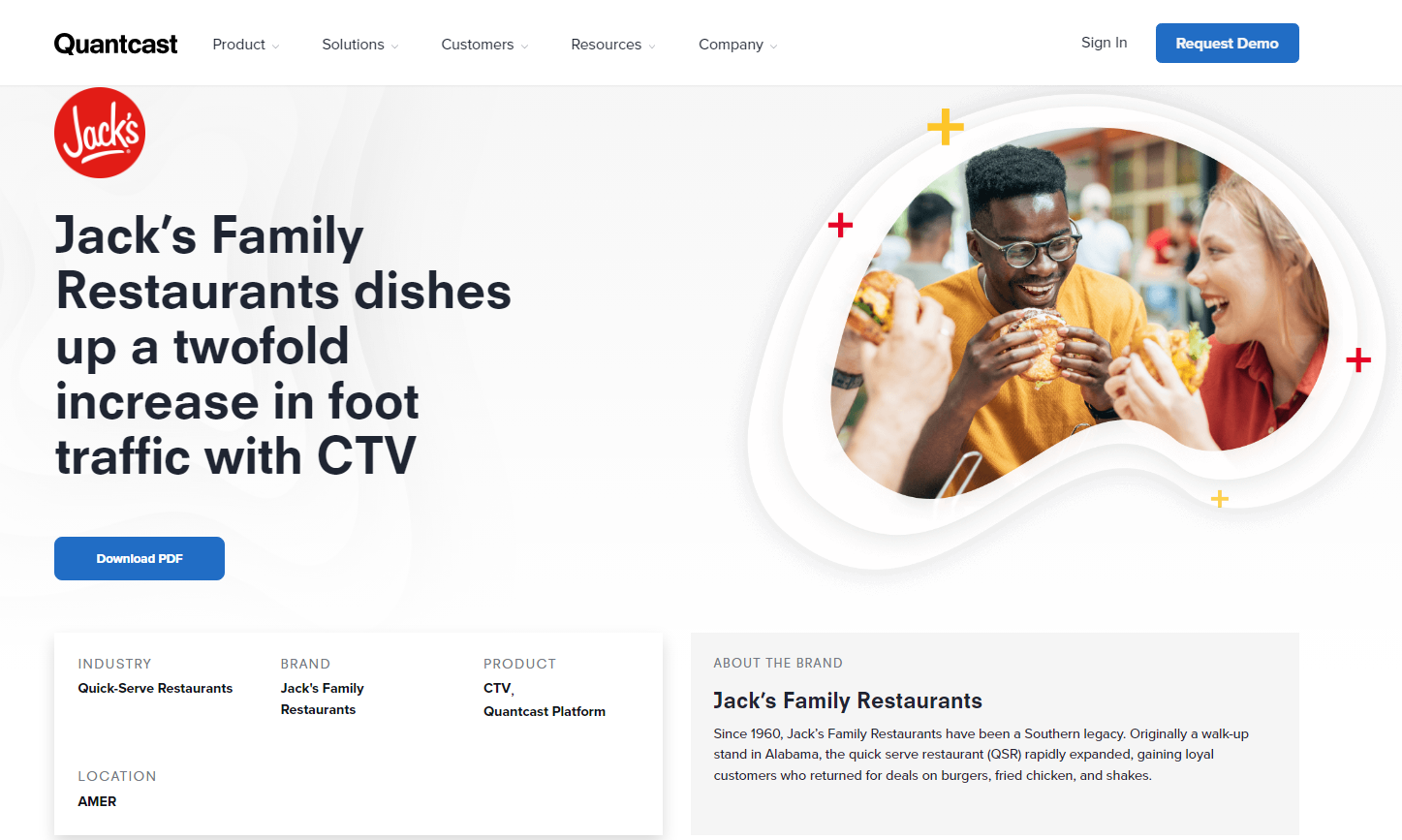
It’s natural for your goals and dreams to evolve as you grow. You might have felt thrilled to land an internship at the beginning of your career. As you gain experience, you may set your sights on senior leadership roles. This ambition can drive you to reach goals you may have never thought possible.
Companies often have similar journeys. New businesses typically focus on selling products in their local area or niche. As they expand, they target bigger clients and diversify their offerings. Enterprise marketing can help you scale your business and effectively make this transition.
Enterprise marketing involves promoting your brand to large companies with many employees. Landing these big clients can help you expand your business and boost revenue. However, enterprise marketing requires strategies different from regular marketing.
This guide explores enterprise marketing techniques and tools to help you scale your business. We also discuss common challenges and best practices to overcome them.
Introduction to enterprise marketing
Enterprise marketing is the promotion of products and services to enterprise-level organizations.
Enterprise businesses typically share these traits:
- Hundreds of employees
- Many locations
- May operate on a global scale
- Generate $50 million or more in revenue
- Large budgets
- Overseen by a board of directors
Enterprise marketing is a bit more complicated than traditional marketing. Large companies have more complex decision-making processes than their smaller counterparts. Instead of impressing a single client, you must win over many stakeholders. These leads often have different priorities you’ll need to address in your marketing.
Enterprises typically have longer sales cycles than smaller companies. It takes time to nurture leads in different departments and understand their concerns. The process of negotiating deals and passing compliance checks can also take months. In other words, expect your enterprise marketing efforts will take time before you get tangible results.
But don’t get discouraged. Big companies often have large budgets and want to partner with reliable suppliers. That means your business has plenty of opportunities to grow and thrive. Enterprise marketing also lets you focus on a handful of high-value clients. This process is more efficient than marketing to hundreds of smaller clients.
Common challenges in enterprise marketing
Businesses of all sizes often face challenges in enterprise marketing. But you can overcome these hurdles with the right knowledge and tools.
Resource allocation
Resource allocation is one of the most common obstacles to encounter. It can be expensive to fund enterprise marketing campaigns. You may need resources like:
- Marketing automation software
- Data analytics platforms
- Other tools
Plus, enterprise marketing often requires more staff than traditional methods. These costs can add up quickly.
Executive buy-in can help you overcome this obstacle. Leaders who understand enterprise marketing are more likely to offer financial support. Small businesses can also use technology to conserve limited resources. For instance, artificial intelligence (AI) tools can help you brainstorm content, saving time.
Collaboration across departments
Some companies also struggle to collaborate effectively across departments. For example, your marketing and sales teams may have different goals or messages. This lack of teamwork can make it challenging to organize complex marketing campaigns. To solve this issue, create cross-departmental teams with shared goals.
Program management in a large-scale environment
Even the most experienced marketers can feel overwhelmed by enterprise marketing. You may need to juggle several leads, channels, and teams at once.
Project management techniques can help you stay organized. Create detailed marketing plans for every potential client. These plans should include goals, timelines, resources, and other information. You can also use technology to improve communication and collaboration. Platforms like Slack and Microsoft Teams make it easy for teams to stay in touch.
Vendor relationship management
Many companies rely on vendors for supplies and services. You can run into roadblocks if you don’t manage these relationships efficiently.
Say you agree to sell an enterprise a thousand custom office chairs. You won’t be able to fill this order if you can’t get enough fabric from your vendor.
Clear communication with your vendors can help you avoid this problem. Keep them in the loop about your enterprise marketing goals and timelines. That way, they can set aside resources to meet your needs. Vendor relationship management software also lets you organize documents and track performance.
Communication silos
Enterprise marketing often requires several departments to work together. You can run into trouble if these teams don’t share information effectively. Suppose your sales team has identified a few enterprises that fit your buyer persona. Your marketing team can’t target these leads if the sales team doesn’t communicate.
To overcome this hurdle, organize regular meetings between departments. Encourage teams to share data and work together to nurture leads. It’s also helpful to use customer relationship management software. This technology lets everyone access information about leads in one place.
Strategic enterprise marketing management
Many companies have dedicated managers for their enterprise marketing campaigns. These specialists develop marketing strategies, oversee teams, and check progress. They’re also in charge of managing budgets and keeping projects on track.
Here are a few essential skills for enterprising marketing managers:
- Communication
- Delegation
- Financial management
- Flexibility
- Leadership
- Problem-solving
- Project management
- Search engine optimization (SEO)
- Stakeholder engagement
- Strategic thinking
- Time management
Enterprise marketing techniques for success
You can use many strategies to market your brand to enterprises. Using several methods at once will increase your reach. Here are five leading strategies to help you get started.
Integrate word-of-mouth and user-generated content

Word-of-mouth is one of the most effective ways to promote your brand. Leads are more likely to trust products and services that they’ve heard about from others.
Harness the power of word-of-mouth in your enterprise content marketing. Ask your current clients to support your brand with user-generated content. These materials can include case studies, testimonials, and reviews.
Use lead scoring for higher conversions
Lead scoring is the process of assessing and ranking prospects. You can use many criteria to score enterprises, including:
- Budget
- Company size
- Engagement
- Geographic location
- Industry
- Level of interest
- Timeframe
Lead scoring focuses on the most promising prospects, helping increase conversions. Imagine that Company A has requested a product demo and wants to buy it next month. Meanwhile, Company B has yet to engage with your brand and has a small budget. It makes sense to invest time in Company A because they’re more likely to convert.
Target international markets and deepen marketing penetration
Many enterprises operate in more than one country. Tap into global markets to connect with new audiences and expand your reach.
Enterprise search engine marketing is one way to reach global clients. This process involves targeted ads and keywords tailored to international audiences. You can also localize your content and adapt it to different cultures. For instance, you could translate a blog into Spanish to fit a local community.
These strategies can also deepen your marketing penetration. They build brand awareness and help you gain the trust of new customers. These methods allow you to attract loyal customers on a global scale.
Assess the diversification of audiences
Enterprise marketing lets you attract more diverse clients that may not have been a part of your original target audience. These audiences often have distinct goals and preferences. Segment these clients into different groups so you can personalize your marketing.
Invest in multi-channel marketing activities
Most large companies have many decision-makers with different communication preferences. Using many marketing channels will help you reach the most leads. For example, you could use SMS text message marketing for young decision-makers. Meanwhile, you can create a whitepaper on the same topic for people who crave deeper analysis.
Best practices in enterprise marketing
Follow these best practices to elevate your enterprise marketing campaigns.
Develop and maintain a consistent brand voice
Enterprise marketing usually involves large teams. Create a brand voice along with a style guide that describes your brand’s tone and personality to ensure everyone shares the same messaging with clients. This guide should also include examples of language to avoid.
Map goals and plan expansion
Your business plan should include goals related to your enterprise marketing efforts. For example, you might aim to convert three companies in the next six months. You should also map out how you will expand your marketing in the long term. This plan could include branching into new marketing channels and finding international leads.
Combine account-based marketing with other strategies
Account-based marketing focuses on individual companies. Marketers create custom content based on each account’s goals and pain points. Combine this approach with enterprise marketing tactics, such as multi-channel marketing.
Check performance and make strategic adjustments
It’s essential to watch how your enterprise marketing performs. That way, you can see what works and adjust your methods accordingly.
These metrics can provide insights into your performance:
- Click-through rate
- Cost per lead
- Customer lifetime value
- Engagement
- Event attendance
- Lead conversion rate
- Marketing return on investment
Use enterprise marketing software
Manage your campaigns with enterprise marketing software. Constant Contact’s Enterprise Program makes it easy to promote your brand. Your team can access libraries of approved assets and use digital marketing tools as you grow and scale your brand.
Enterprise marketing tools and technologies
Every enterprise SEO marketing company needs the right tools. Look for affordable and accessible technology that grows with your business. Choose software with these handy features:
- Ability to integrate with existing platforms
- Data analytics tools
- Marketing automation
- Mobile apps
- Reporting
- Secure databases to manage client information
- Templates
Constant Contact’s enterprise marketing automation software offers all these features and more. For instance, you can use this platform to send personalized emails to decision-makers.
Adapting enterprise marketing to scalability
Adapt your enterprise marketing over time to grow your business.
- Experiment with new methods to build brand awareness. For example, you can create new content like ebooks and podcasts. You can also organize conferences and webinars to promote your brand.
- Spend time creating authoritative content. These materials can include case studies, infographics, and whitepapers. Translate this content across several channels for the most impact.
- Implement lead scoring. Adjust your criteria as your goals and target audience change. You might narrow your criteria to focus on the highest quality leads or expand it to broaden your pool.
- Invest in a headless content management system (CMS) like Constant Contact. This technology lets you share content across many channels from one convenient hub.
Personalization and customer engagement
Personalize your content to appeal to decision-makers. First, identify and segment your audience. You can separate clients by pain points, industry, and other criteria.
Next, choose the right marketing channels for each audience. Some clients may prefer snappy emails, while others want to watch videos. Consider conducting surveys to learn about these preferences. It’s also vital to deliver valuable content to enterprise leaders. For example, you can create content about industry trends and everyday challenges. Prospects are more likely to engage with these educational materials.
Finally, embrace workflows for agile marketing. This approach lets you adapt content to different clients and respond to new trends.
Measuring success and ROI in enterprise marketing
Assess your marketing efforts often to ensure you’re on the right track. You can use many account-specific key performance indicators to measure success, such as:
- Customer acquisition costs
- Brand awareness
- Return on investment
- Website traffic
Choose accurate analytics and reporting tools so you can track your performance effectively.
Future of enterprise marketing

Enterprise marketing practices will continue to evolve as technology advances. One of the latest trends is using AI to generate custom content at scale. This tool can create personalized emails, blog posts, and more.
Some marketers also use augmented and virtual reality to promote their brands. This innovative technology enables you to showcase your products in new ways and helps you stand out from competitors.
Harness the power of enterprise marketing
Enterprise marketing focuses on converting large companies into clients. This approach lets you concentrate on high-value clients with big budgets. A single deal with a big company can significantly boost your revenue and reputation.
To get started, identify companies that fit your target audience. Research their pain points and create custom content tailored to their needs. Before you know it, you’ll be building relationships with key decision-makers.




